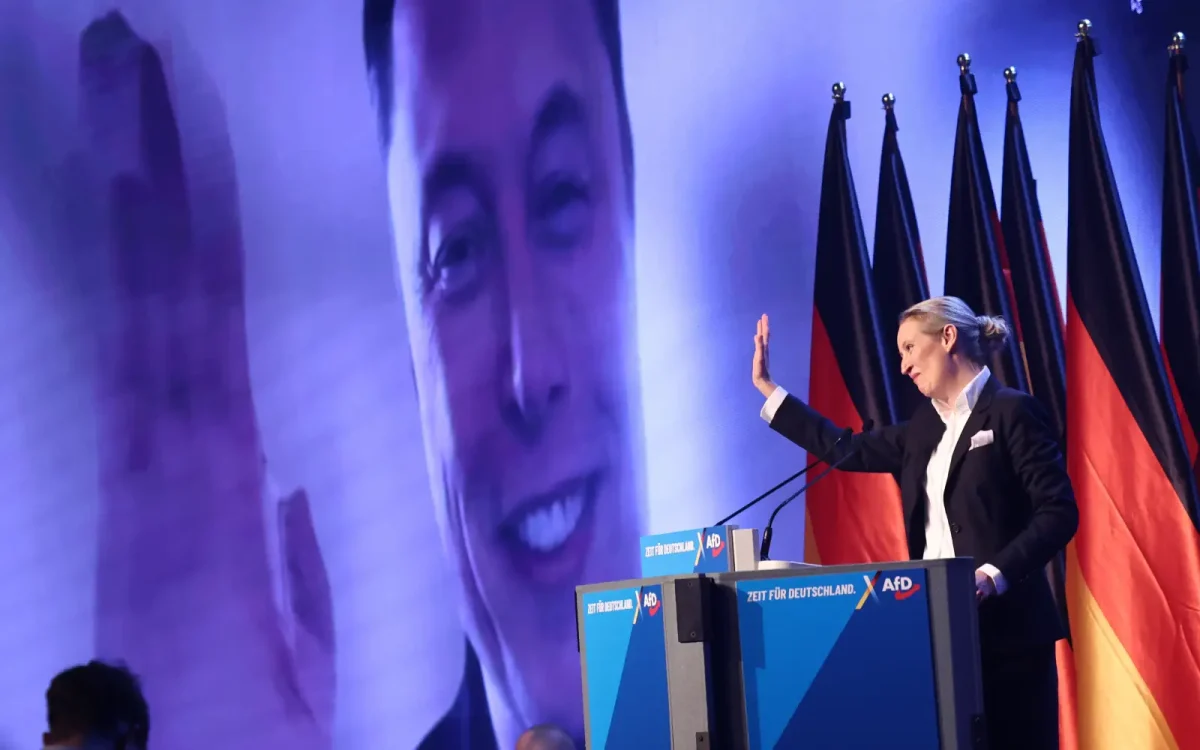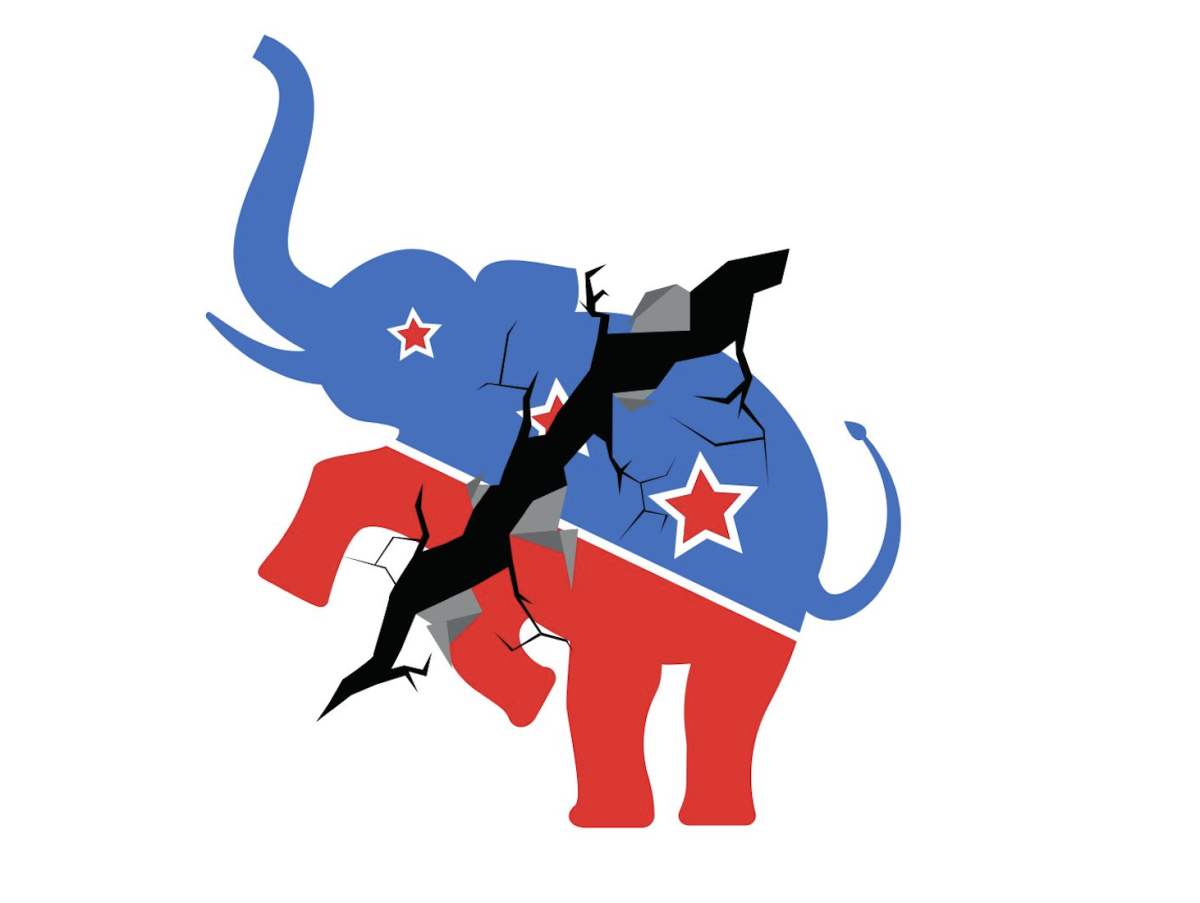Days before the 80th anniversary of the Liberation of Auschwitz, Elon Musk, the world’s richest man, delivered a speech at President Donald Trump’s post-inauguration rally in Washington, D.C. Midway through the speech, Musk struck his hand to his chest and extended his arm outward and upward. To the shock of millions of viewers worldwide, he turned around and repeated the same gesture behind the podium.
“My heart goes out to you,” he said to the crowd of MAGA supporters.
The gesture bore a chilling resemblance to the infamous salutes once performed by Adolf Hitler, Benito Mussolini and other 20th-century fascist leaders. Immediately after, Musk’s questionable gesture sparked a storm of controversy across social and traditional media. Musk’s defenders rushed to his side to downplay the severity of this incident, claiming that the salute was simply a socially awkward gesture–some even attributing it to the billionaire’s autism. Others argued that the context was everything. Given the gesture’s deep history and being used by Musk twice in a matter of seconds, many dismissed the idea that it was accidental or merely a coincidence.
This isn’t the first time Trump, his constituents or his supporters have utilized fascist imagery. In 2016, far-right activists were seen using the same salute to celebrate Trump’s victory. The gesture resurfaced at another Trump Rally in 2022 when a crowd of MAGA supporters raised their hands in unison in a display jarringly reminiscent of the Nazi salute.
While the United States has no legal restrictions regarding Nazi symbolism, many countries around the world–including Germany, Australia, Japan, Italy, Austria, France, Sweden, Czech Republic, Poland, Canada, Netherlands and Switzerland–ban public displays of fascist symbols and salutes. Musk’s salute at Trump’s inauguration reignited a global debate about the power of symbols in modern politics and their connection to the Holocaust, during which Nazis murdered over six million Jews.
Musk himself fanned the flames even further. In response to the backlash, he took to his social media platform, X, stating that: “The ‘everyone is Hitler’ attack is sooo tired,” before following this up with a series of Nazi puns. His wildly dismissive and unprofessional response did little to ease concerns. Many historians and politicians believe the salute was unambiguous, warning that the growing normalization of far-right ideology was not accidental; instead, it was strategic.
Less than a week later, Musk made a virtual appearance at a rally for the far-right German political party Alternative for Germany (AfD), where he reaffirmed his support. “Germans should move beyond the guilt of the Holocaust,” he declared.
Meanwhile, tens of thousands of Germans took to the streets of Berlin in protest. The crowd of activists blew whistles, sang anti-fascist songs and carried banners denouncing AfD. Demonstrators condemned the rise of far-right extremism. Like Trump, the AfD opposes immigration, denies climate change, and rails against gender politics. European leaders, already apprehensive about Musk’s involvement in the U.S. elections, now fear for his involvement with German politics as well.
Musk’s salute at Trump’s inauguration and subsequent endorsement of the AfD have intensified global concerns about the creeping normalization of far-right extremism. While Musk’s defenders insist that the gesture was misinterpreted, politicians and historians see it as a clear pattern—one that aligns with a broader effort to mainstream these fascist ideologies.
As anti-fascism protests grow in Europe, Musk’s increasing influence in both the United States and Germany raises questions about the role of wealth and power in shaping extremist world views. The ongoing controversy surrounding Musk’s role in global politics emphasizes the importance of historical awareness in resisting the resurgence of extremist hate symbols and far-right ideologies. Musk’s gesture at Trump’s inauguration serves as a stark reminder of the weight symbols carry and the urgent need for historical understanding of Germany’s past to ensure the country’s grim history does not repeat itself tenfold.







Melissa Weisman • Feb 11, 2025 at 8:12 pm
Well rounded article which raises awareness and attributes actual facts from other well regarded media outlets to support the author’s perspective.
Cynthia Weiss • Feb 11, 2025 at 7:26 pm
I learned so much from this article. I’m impressed with how balanced the reporting is.